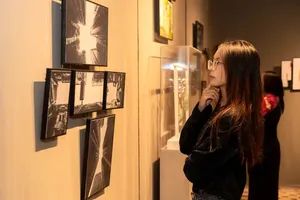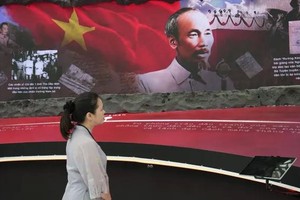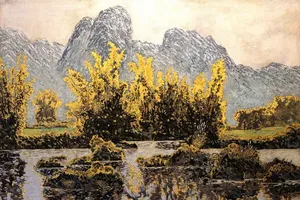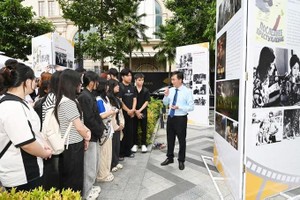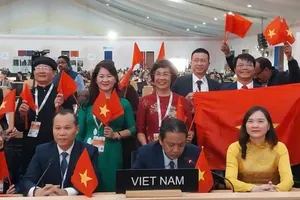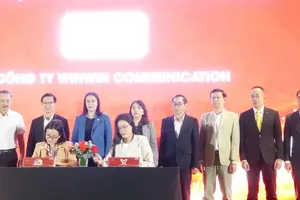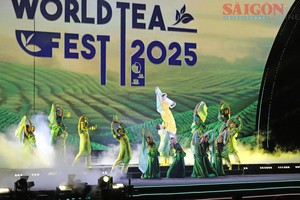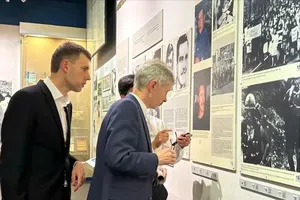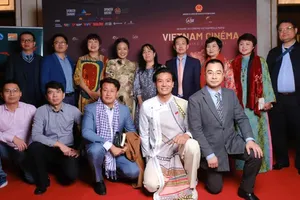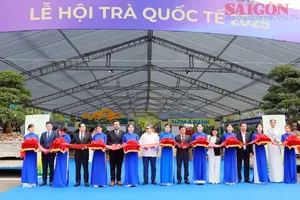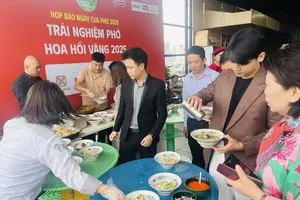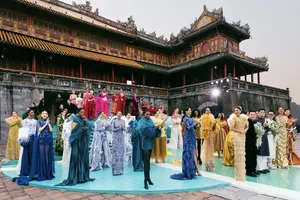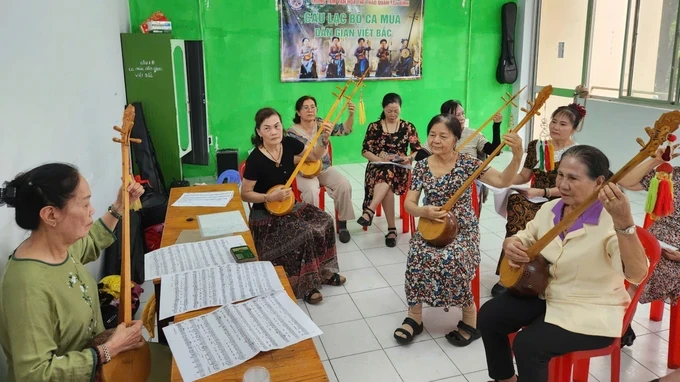
Artist Ngoc Quang, Head of the Truc Xinh Quan Ho Club at the Ho Chi Minh City Labor Culture Palace emphasized that a genuine passion for Quan Ho is an indispensable prerequisite for the successful transmission and dissemination of this unique artistic heritage.
The Truc Xinh Quan Ho Club is presently conducting Quan Ho singing classes every Saturday at the Labor Culture Palace in Ho Chi Minh City. Furthermore, club members actively utilize social media platforms to promote their activities and disseminate information to a wider audience, including individuals unfamiliar with Quan Ho singing.
According to artist Ngoc Quang, as long as there is someone who appreciates Quan Ho, Truc Xinh Club is eager to teach them with dedication.
The artist also mentioned that a significant achievement of the Truc Xinh Quan Ho Club is the establishment of a new network of Quan Ho Clubs, which plays a vital role in promoting and inspiring various age groups to engage with Quan Ho folk songs.
This initiative is made possible by members who have acquired proficiency in traditional melodies and lyrics, leading to the formation of new Quan Ho Clubs across districts and provinces, including Quan Ho Betel and Areca in Ho Chi Minh City’s Binh Thanh District, Quan Ho and Folk Songs in Binh Tan District, Quan Ho District 2, Quan Ho Thu Duc City, Bac Song Cau in Tan Binh District, Quan Ho Duyen in Tan Phu District, Quan Ho Lung Lieng in District 3, Tinh Nguoi Quan Ho in District 10; Quan Ho Duc Linh in Binh Thuan Province; and the Dan Va Dan Ca Club in Binh Phuoc Province.
Artist Ngoc Quang, in collaboration with esteemed colleagues such as People's Artist Thuy Huong, Meritorious Artist Thanh Nhan, and lecturer-artist Thanh Hieu, has published numerous CDs and albums showcasing Quan Ho folk songs. Additionally, he has actively engaged in performing and teaching Quan Ho singing at various educational institutions, including Ho Chi Minh City University of Medicine and Pharmacy, Saigon College of Tourism and Vocational Training, and Tran Quang Khai Primary School in District 1.
The preservation and dissemination of intangible cultural heritage from the Nghe Tinh region within Ho Chi Minh City has been significantly influenced by the crucial role played by the Nghe Tinh Vi Giam Club. The leadership of People's Artist Nguyen Hong Oanh, Chairperson of the Club, has been instrumental in its success.
Tragically, the passing of People's Artist Nguyen Hong Oanh, Chairperson of the Nghe Tinh Vi Giam Club, in February 2024 following a stroke, was a significant loss for the club and the wider community of Vi Giam enthusiasts. To ensure the continuity of the club's mission to preserve and disseminate Vi Giam melodies, Artist Huong Lai (real name Ha Thi Thu Lai) has assumed the role of Chairperson, demonstrating a commitment to carrying forward the legacy of her predecessor.
With decades of professional experience and a history of teaching at numerous clubs, artisan Nguyen Thi Bich Lien carefully adjusts each string before the practice session, ensuring the smoothest possible sound for the members.
Over the past decade since establishing her classes, Meritorious Artist Phuong Hau, the Head of the Gia Dinh Amateur Music Club, has cultivated the talents of approximately 60 individuals. Recognizing the passion many young enthusiasts have for amateur music yet their lack of access to formal training, she graciously offers free instruction. Her vision is to nurture fresh, promising talent capable of safeguarding and advancing this cherished traditional art form for future generations.
For nearly a decade, the Nguyen Du Amateur Music Club, overseen by Meritorious Artist Minh Duc at the District 1 Cultural and Sports Center, has consistently offered free classes. These sessions focus on amateur music, traditional cai luong (reformed opera), and Don ca tai tu Nam Bo (Southern amateur traditional music), catering to individuals deeply passionate about preserving and embracing this art form.
Also from the training and passing on of the profession, the Club has about 70 percent of veteran members with solid amateur singing techniques, some members have made efforts to practice and improve their expertise to test themselves, participating in the Bong lua vang (Golden Rice ) and Chuong vang vong co (Golden Bell) competitions.
The traditional transmission of intangible cultural heritage often relies heavily on oral communication. While this method possesses inherent advantages, it also carries the risk of distortions and inconsistencies. Consequently, the accurate and systematic transmission of these invaluable traditions remains a paramount concern in their preservation efforts.

